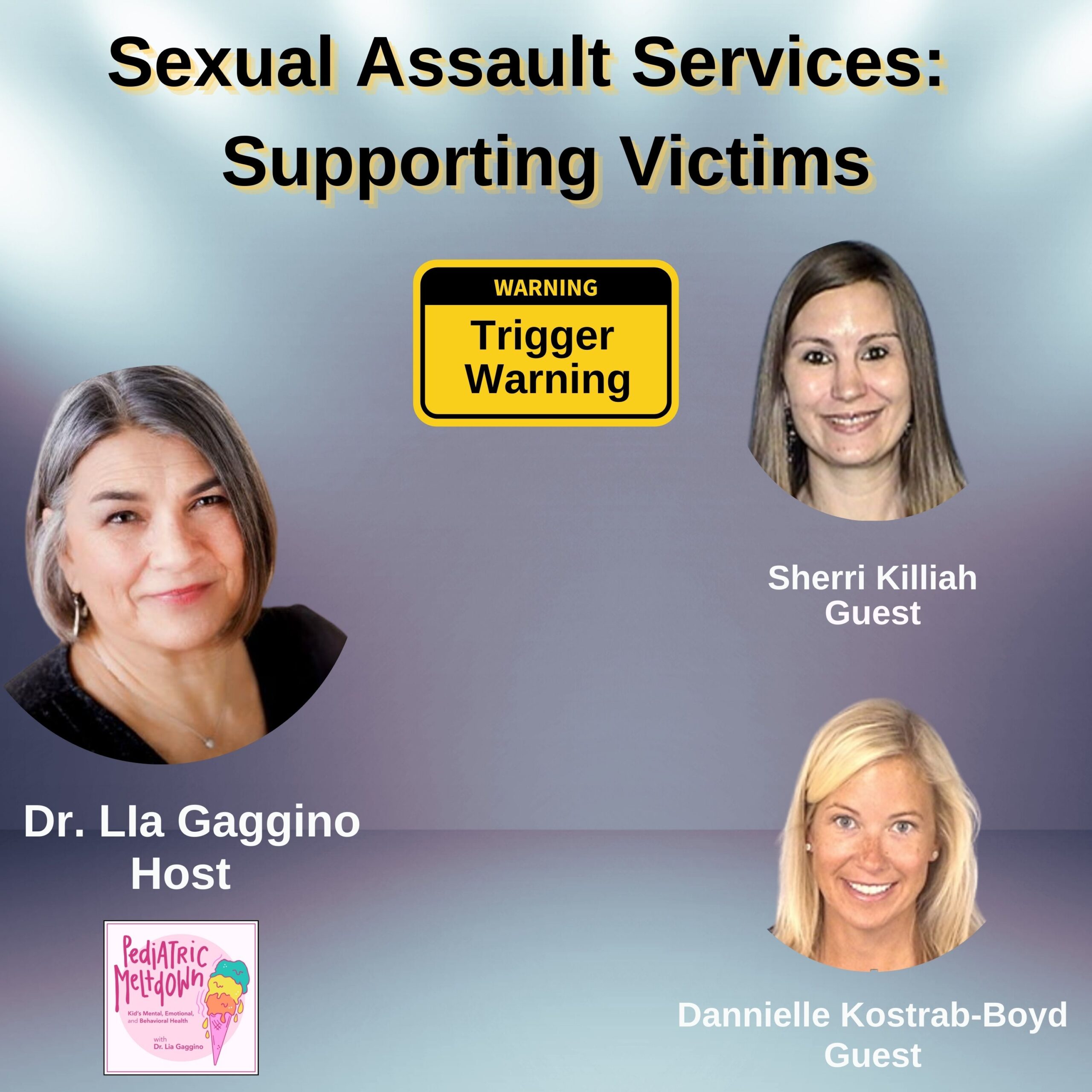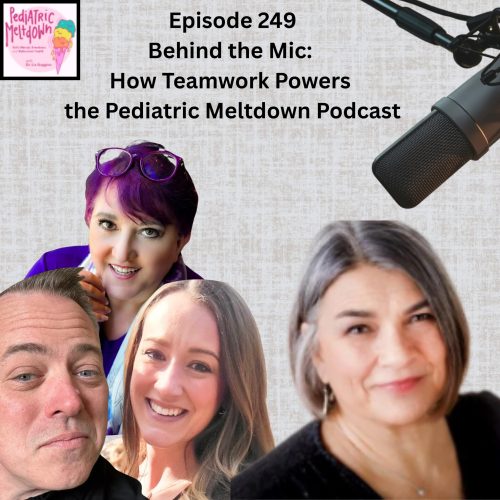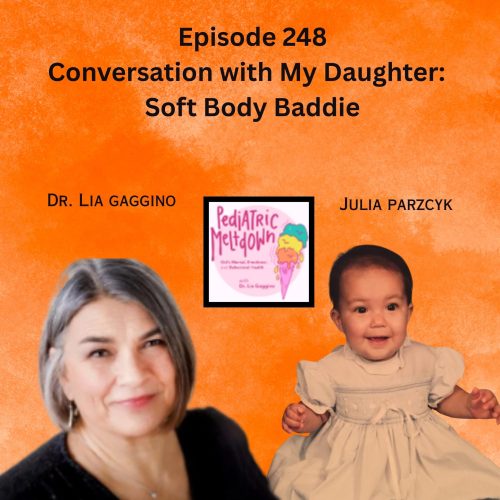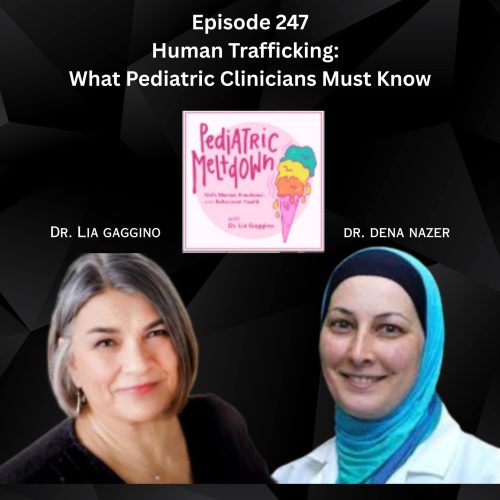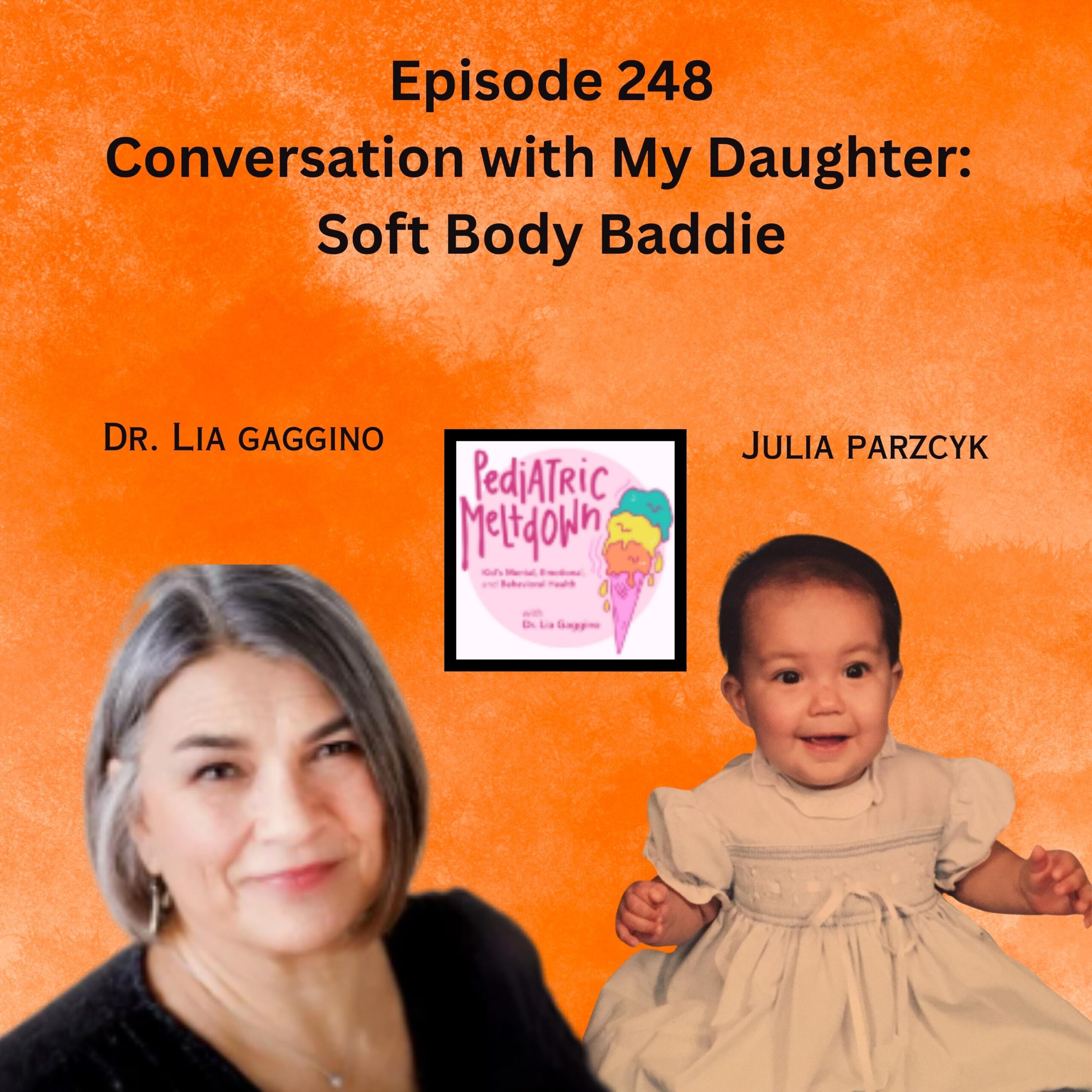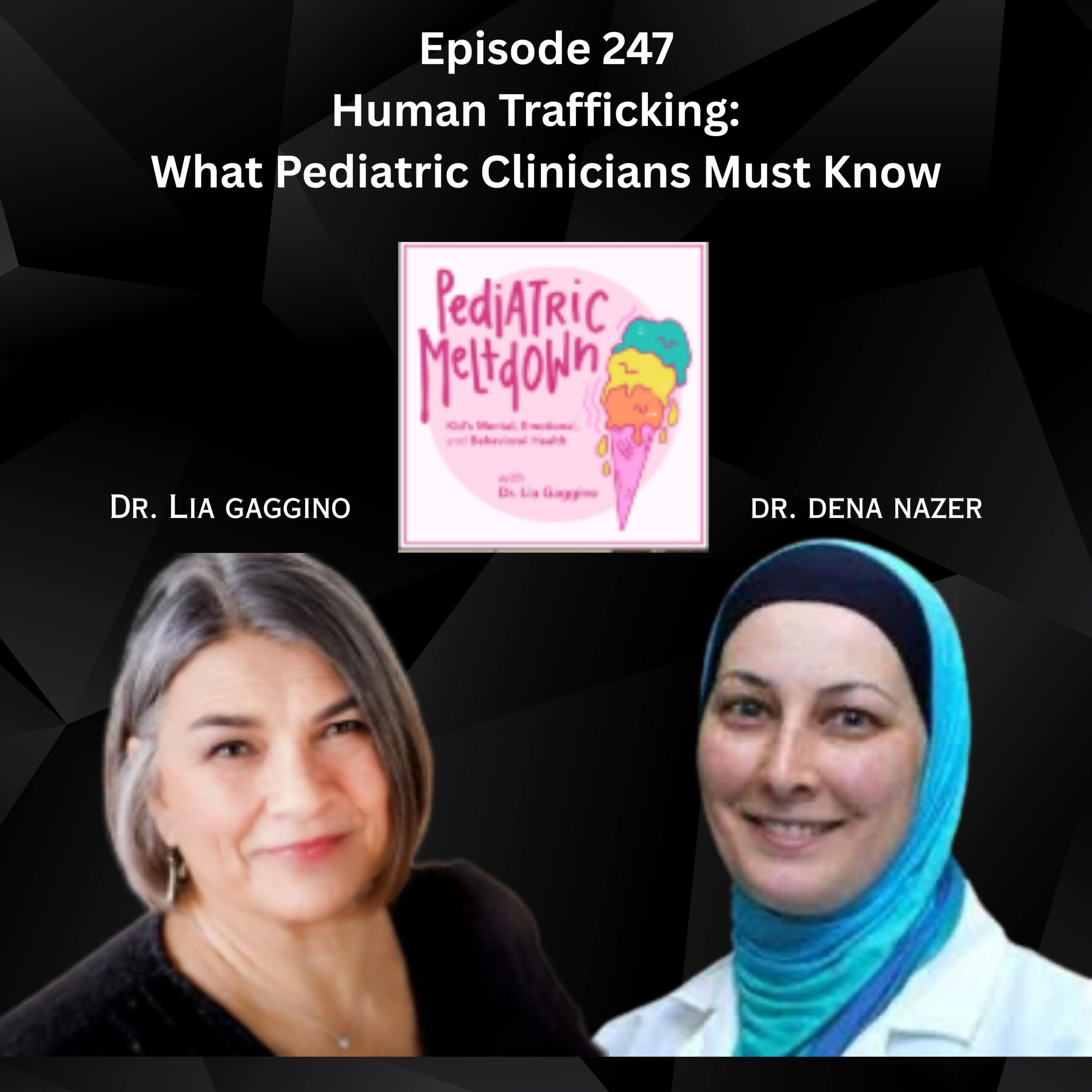Sexual Assault Services: Supporting Victims
This week we’re tackling the critical issue of child sexual abuse prevention. The conversation goes into various aspects, including the prevalence of sexual abuse among children and the different levels of sexual behaviors in children—normative, cautionary, and problematic. Understanding these distinctions is essential for proper management and intervention. Special guests, experts Dannielle Kostrab-Boyd and Sherri Killiah, who work with sexual assault services, share invaluable insights.
They reveal alarming statistics and underscore the pediatricians’ role in preventing abuse through early intervention. We also highlight the need for open communication on body safety, urging parents to create a safe and trusting environment for their children.
The episode provides an in-depth look at the services offered by Sexual Assault Nurse Examiners (SANE), covering the meticulous process of forensic examinations in child abuse cases. The discussion underscores the critical need for a compassionate and non-judgmental approach to both care and communication.
By fostering open lines of communication and ensuring education on body autonomy for kids, we aim to arm parents, healthcare providers, and specialized services with the tools needed to effectively address and prevent child sexual abuse. To understand the collective effort required to support and protect the most vulnerable members of our society, just tap on “play”
[02:58-17:33 Importance of Recognizing Child Sexual Abuse
- Prevalence of Child Sexual Abuse: 1 in 10 children will experience sexual abuse before the age of 18, a statistic likely underestimated.
- Age Range of Affected Individuals: Victims can range from as young as 5-6 weeks to 96 years old.
- Levels of Sexualized Behaviors:
– Normative: Voluntary, infrequent, easily redirected behaviors with familiar children.
– Cautionary: Behaviors occurring in inappropriate places, increasing in frequency and involving technology.
– Problematic: Behaviors involving self-harm, coercion, and inappropriate sexual content for the child’s age.
[17:34 – 32:25] Emotional and Psychological Impact of Abuse
- Behavioral Changes: Indicators include regression, depression, anxiety, and fear.
- Physical Symptoms: Nightmares, bedwetting, and advanced sexual knowledge are common signs.
- Educational and Social Challenges: Difficulties in school performance and peer relationships.
- Clinical Guidance: Clinicians should prioritize open communication, ask about behavioral changes, and provide a private space for discussions.
[32:26 – 48:19] The Role of Pediatricians in Prevention
- Resource: Pediatricians should ensure prevention information is accessible in waiting rooms, including books and posters.
- Building Trust: Establish a safe, trusting relationship with both caregivers and children.
- Body Autonomy : Encourage expectations for body autonomy and offer choices during examinations, especially private areas.
- Correct Terminology: Using correct medical terminology and explaining the necessity of examinations to create a safe space
[48:20 – 51:01] Available Resources and Support Services
- SANE Program: Regional program providing specialized medical and forensic exams, victim advocacy, provides empowerment-based care, emotional support, and follow-up for survivors.
- 24-Hour Crisis Line: Immediate support available through a crisis hotline.
- Comprehensive Services: Individual, family, and group counseling, children’s advocacy center, and prevention programming.
- National Resources: Accessing services through national organizations and text messaging options for wider reach.
[51:02 – 58:07] Closing segment Takeaways
Links to resources mentioned on the show
International Association of Forensic Nursing
https://www.forensicnurses.org/
Academy of Forensic Nursing
International Association of Forensic Nurses – Research.Educate.Lead
RAINN: National Hotline 1-800-656-4673, RAINN | The nation’s largest anti-sexual violence organization and online.rainn.org (chat)
Helping Survivors (Partnered with RAINN)
Ride Sharing Sexual Assault Safety – helpingsurvivors.org/rideshare-sexual-assault/
Also, you can see more about the Uber lawsuit here – helpingsurvivors.org/rideshare-sexual-assault/uber-lawsuit/
National Sexual Violence Resource Center: www.nsvrc.org
National Children’s Alliance: Homepage – National Children’s Alliance (nationalchildrensalliance.org)
National Children’s Advocacy Center: www.nationalcac.org
Darkness To Light: Resources – Darkness to Light (d2l.org)
The Mama Bear Effect: Home – The Mama Bear Effect
The National Center on the Sexual Behavior of Youth: www.ncsby.org
Office for Victims of Crime Training and Technical Assistance: www.ovcttac.gov
Michigan Resources:
SAS Business office (269) 245-3925
SAS 24/7 crisis-line: 1-888-383-2192
State Sexual Assault Crisis Hotline: 855-864-2374, 855-VOICES4
Michigan Coalition Ending Domestic and Sexual Violence: https://mcedsv.org
Michigan Victim Advocacy Network: https://mivan.org
Children’s Advocacy Centers of Michigan: https://cacmi.org
Other episodes you may like:
https://pediatricmeltdown.com/episodes
- Healthy Social Media Use: A Doctor’s Perspective!
- Social Media Dangers: Protecting and Educating Youth
- Social Media: Guidance for Youth and Families
- Social Media and Kids: The Big Picture
- Child Abuse and Neglect: Asking the Hard Questions
Building Better Workflows Podcast
Key quotes for Twitter:
“1 thing that I really like about the RAINN’s contact information is that they do also have a chat option, so a text messaging option. So for people that are not comfortable speaking the words or or calling a number, they can also just text or or chat to get those resources or the support that they need.”.. Sherri Killiah on Tech savvy support
“Anytime a survivor or victim goes in to make a police report that they have the option to have that victim advocate present for them.”.. Dannielle Kostrab-Boyd on supporting survivors every step of the way
**Transcript of Episode Available upon request**
THANK YOU FOR YOUR SUPPORT!
Pediatric Meltdown was listed as a Top 20 Pediatric Podcast on FeedSpot.
If you’d like to connect with me, you can Tap the “What Are Your Thoughts” button at the top of the notes or you can find me on LinkedIn, Facebook, Instagram, and Twitter, or email me at gagginol@gmail.com. To learn more about me visit https://www.pediatricmeltdown.com/ or reach out, DM me on IG, FB or LI and if you’d like to chat set up a discovery call to talk about your needs and challenges: https://calendly.com/gagginol/discovery-call

